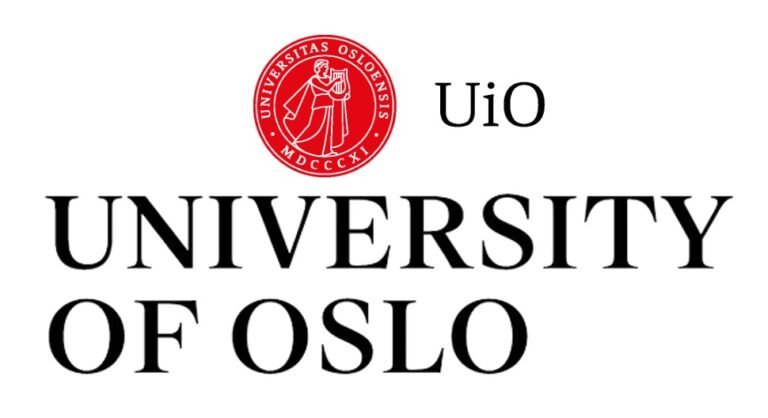Do you want to work with methods for generative machine learning and its use in nonlinear dynamic systems, with the support of competent colleagues in a leading international environment? Do you want an employer that invests in sustainable employment and offers safe, favorable working conditions? Welcome to apply for employment as a doctoral student at Uppsala University.
Uppsala University has a long tradition of successful research – among its alumni are 16 Nobel laureates, most recently Svante Pääbo. The university is unique in combining IT with broader research, from the life sciences to the humanities, and this collaboration is currently facilitated by AI4Research and the Center for Interdisciplinary Mathematics.
The Department of Information Technology has a leading position in both research and education at all levels. We are currently Uppsala University’s third largest department and currently have just over 350 employees, of which 120 are teachers and 120 are doctoral students. Approximately 5,000 undergraduate students take one or more courses at the department each year. More information about us can be found on the Department of Information Technology website .
At the Department of Systems Engineering, we develop both theory and concrete tools for designing systems that learn, reason and act in the real world based on a seamless combination of data, mathematical models and algorithms. Our research integrates expertise from machine learning, optimization, control theory and applied mathematics, and spans various application areas such as medicine, energy systems, biomedical systems, neuroscience and security. At the department, we have a wide network of strong international collaborators all over the world, for example at the University of Cambridge, University of Oxford, Imperial College, University of Sydney, University of Newcastle and Aalto University. We strive for all doctoral students to gain a solid international experience during their doctoral studies.
This position is part of the Beijer Laboratory for AI Research , funded by the Kjell and Märta Beijer Foundation. The Beijer Laboratory for AI Research was established in 2023 at Uppsala University with the ambition to grow activities within the subject of AI, with a focus on applications in the life sciences and issues related to societal development.
Project description
The project involves the development of theory and probabilistic methods for generative modeling of nonlinear dynamical systems. These dynamical models are important for explaining and understanding the world around us as many phenomena change over time. When it comes to modeling nonlinear dynamics, flexible models have the potential to significantly improve performance compared to simpler models. Over the past two years, we have focused more on generative models in this context, where we see an interesting future and the successful candidate will contribute to this. An important area here is the design of deep neural network models with long memory.
Job duties
The PhD position involves the development of theory and probabilistic methods for generative modeling of nonlinear dynamical systems. This also includes the task of deriving algorithms that can be used to learn the unknown model parameters from measured data. If there is interest, we will also investigate applications in the life sciences, medicine or biodiversity through our collaborators in cardiology, neurosurgery and biology.
The doctoral student shall primarily devote himself to his own doctoral education. Other duties at the department, relating to teaching and administrative work, may be included within the scope of the employment (max. 20%).
Qualification requirements
Those who are eligible for doctoral level education are those who have:
- completed an advanced degree in engineering physics, computer science, electrical engineering, applied mathematics, machine learning, or a similar field, or
- completed at least 240 credits, of which at least 60 credits at advanced level including an independent project of at least 15 credits, or
- have acquired essentially equivalent knowledge in some other way.
We are looking for candidates with
- a strong interest in developing new methods and models for generative machine learning, with a focus on nonlinear dynamical systems,
- good communication skills with sufficient knowledge of spoken and written English.
- excellent academic results,
- good working knowledge of programming (preferably in Python).
- Personal qualities, such as a high level of creativity, accuracy and/or a structured approach to problem solving are essential.
The university may grant an exemption from the basic eligibility requirement for an individual applicant if there are special reasons. (Chapter 7, Section 39 of the Swedish Higher Education Act). For specific eligibility requirements, see the study plan for the subject.
Desirable/meritorious in other respects
Experience and courses in one or more subjects are valued: statistical machine learning, optimization, linear algebra, analysis, deep learning, programming, and control engineering.
Provisions for doctoral students can be found in the Higher Education Ordinance, Chapter 5, Sections 1-7, and in the university’s rules and guidelines .
Application
The application must contain:
- a personal letter in English (max. 2 pages) in which you briefly explain why you are applying for this position and state your earliest possible start date. The personal letter should include the heading Suitability for this position , which contains a self-evaluation of why you would be the right candidate for this position;
- a curriculum vitae (CV);
- degree certificate and transcript of records with grades (translated into English or Swedish);
- degree report (or draft thereof, and/or other self-produced technical or scientific text), publications and other relevant documents;
- contact information for two references (name, email and phone number) and up to two letters of recommendation.
Applicants who meet at least one of the eligibility requirements are strongly encouraged to apply.
About the employment
The position is fixed-term, according to HF Chapter 5 Section 7. The position is full-time. Start date September 1, 2025 or by agreement. Location: Uppsala.
Information about the position is provided by: Professor Thomas Schön , email: thomas.schon@it.uu.se.
Welcome with your application no later than March 21, 2025 , UFV-PA 2025/86.
Uppsala University is a broad research university with a strong international position. The ultimate goal is to conduct education and research of the highest quality and relevance to make a difference in society. Our most important asset is all 7,600 employees and 53,000 students who, with curiosity and commitment, make Uppsala University one of the country’s most exciting workplaces.
Read more about our benefits and what it’s like to work at Uppsala University
https://uu.se/om-uu/jobba-hos-oss/
The employment may be subject to a security check. In the event of a security check, a prerequisite for employment is that the applicant is approved.
We decline offers of recruitment and advertising assistance.
Applications are accepted in Uppsala University’s recruitment system.





